Hey lovelies ❤️
It's your favorite girl @debbie-ese 😍
Welcome to my blog 🤗
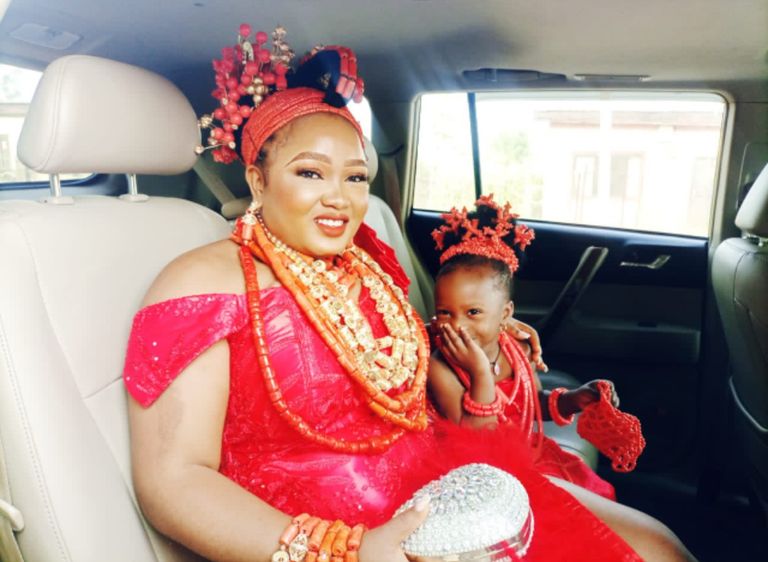
It's exactly one week, let me say by tomorrow it will be a week after my wedding ceremony. I would like to share with you the experience and the whole preparation of the traditional wedding which held as early as possible on the 26th of February before we headed to the Church. First, it was not easy. The whole process was plenty and rigorous but I thank god all the same. I'm from Edo State in Nigeria, so of course, as an African woman from Nigeria I am meant to dress in my traditional attire for the traditional wedding.
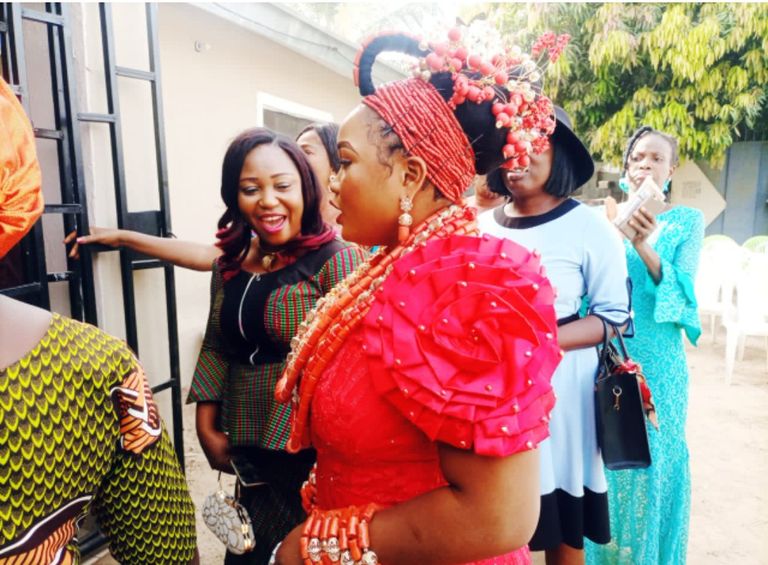
I do not reside in Edo State so I had to look for where to get all that here in Abuja where I reside. Getting all the traditional attires wasn't easy in the particular town where I reside in Abuja I was not able to get the complete one. The one I got was not complete so somebody referred me to another person and the person was charging me a whole lot and it was just for me, she did not have the one for my husband so the search continued. My aunty got a contact of somebody who stays far away from my location. She was able to make my bookings for the Edo traditional attire.
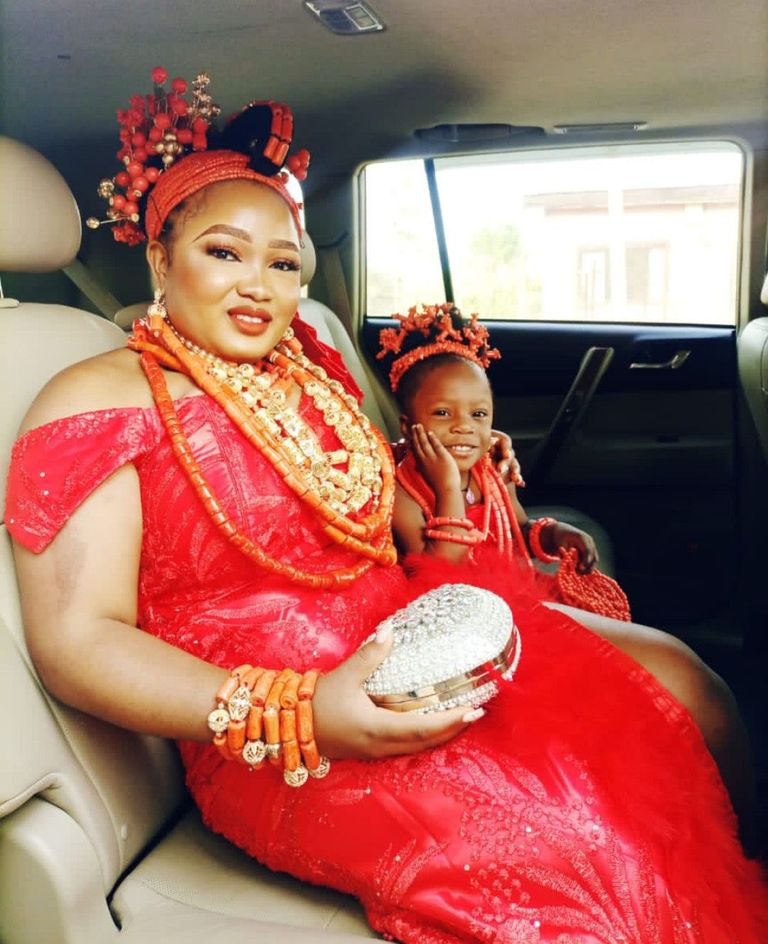
The Edo traditional attire has different names, from olden days women are supposed to dress in red beaded wrapper but due to civilization, you can wear a red dress, for the beaded cap on my head it is called okuku, the neck beads are about 10 - 12 steps of beads, this bride is being adorned with these beads on her neck and hands. We do not manage beads in my tradition. We use it in abundance. Like I told you earlier in one of my posts that I made all my wedding dress, the red gown for the traditional wedding isn't an exception. The red gown is proudly made by me.
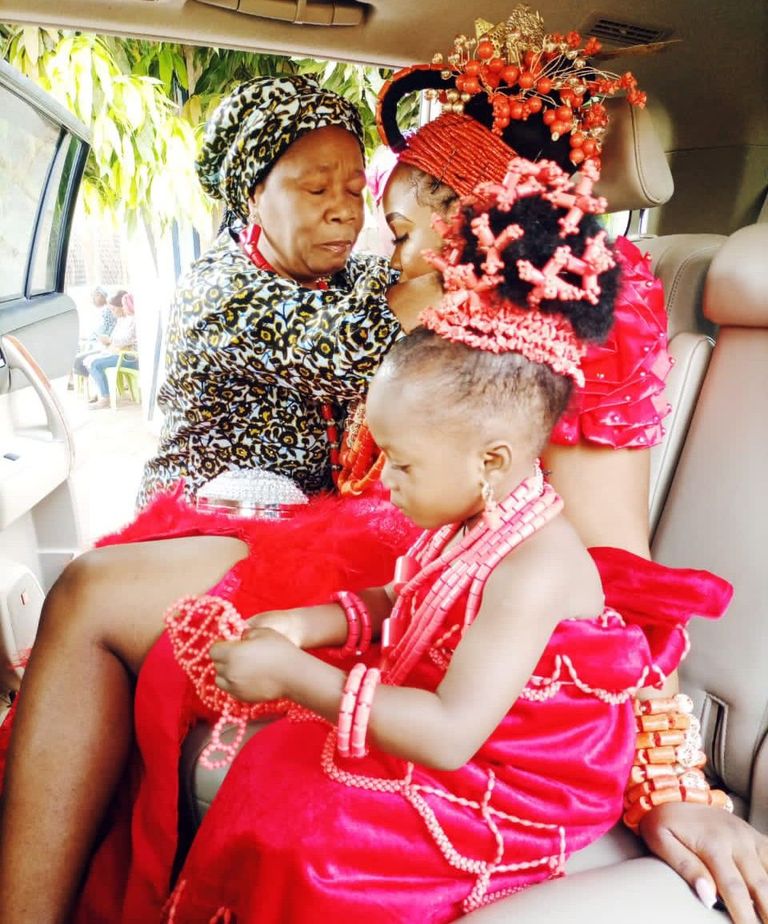
However, my husband is wearing a multicolored wrapper, the wrapper is called Egbulu. This is usually tied by the Esan men of Edo State, though my husband isn't an Esan man, he's a Yorùbá man but he's expected to tie Egbulu for the traditional marriage. Of course, he has his beaded cap, beaded walking stick, bead necklace, beaded wrist chain and the whip. The same dressing goes for the little groom and bride.
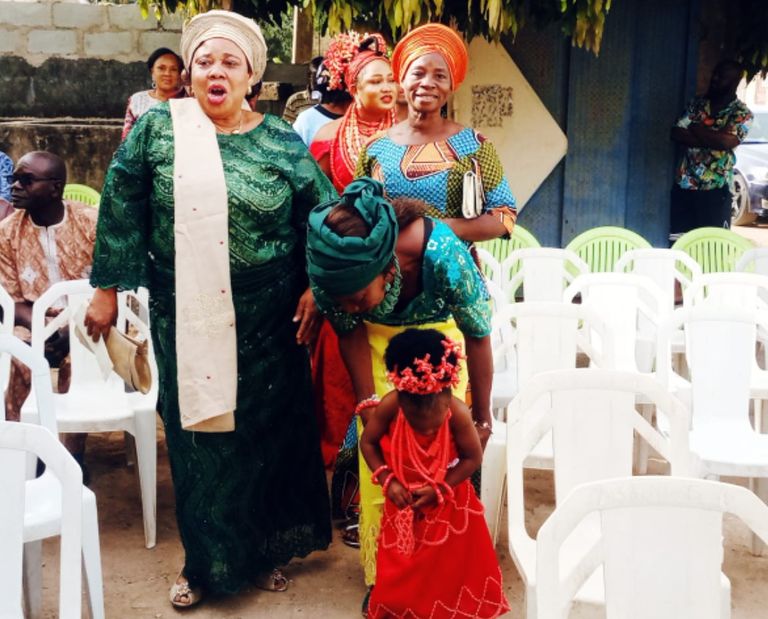
The traditional marriage was scheduled to start by 6.30am but due to one or more reasons we had to start behind schedule. First, my husband was ushered in to meet the elders with dances and music and after about 10 minutes I was also called in with some women dancing as well. During my procession, my husband and his family were adorning my feet with some naira notes - you know I like money. Afterwards, we were sitted and we advised by the Elders that were present. Also we were told to kneel before my parents for prayers and we shared a cup of non-alcoholic wine as a sign of love. We then proceeded to my father in law and mother in law for their blessings.
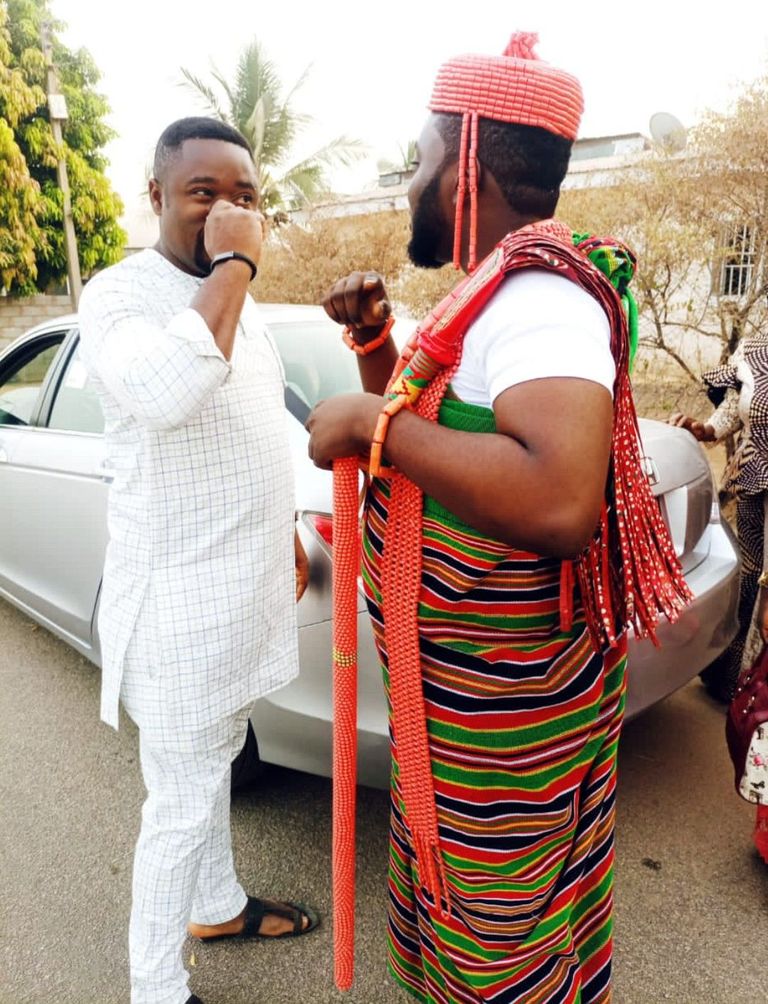
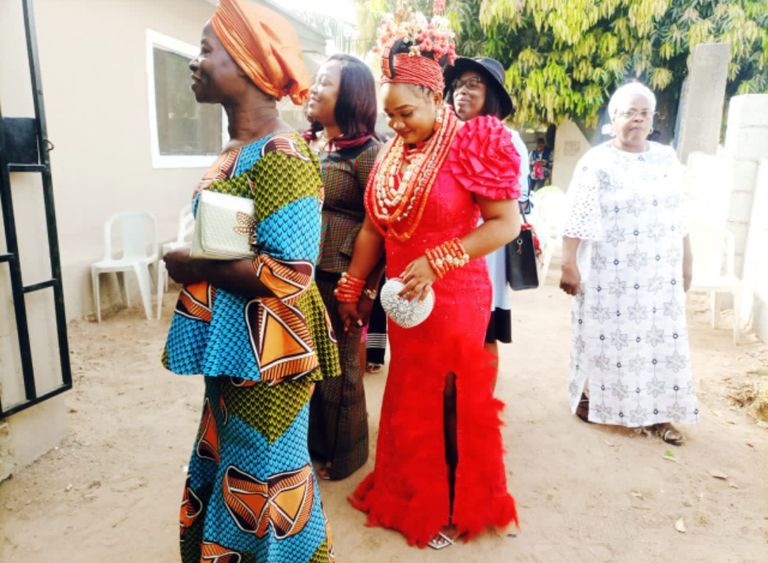
This led us to the formal Edo ancient tradition for both the Benin and Ẹsan people. It is called "ka ukegbe". The process is when the man will be giving a seat or stool to sit on, and the bride's father will hold her face to face by each side of her arms on the laps of the husband and stand her up and sit her continously for eleven times. On the eleventh time the husband will grab the wife and not allow the father lift her up from his laps. Note that if the husband fails to grab the wife by the waist on the eleventh time and he allows the brides father lift her again, the whole traditional process will start from stage one, that is, knocking on the door, meeting the bride's family, telling them your intentions and so on.
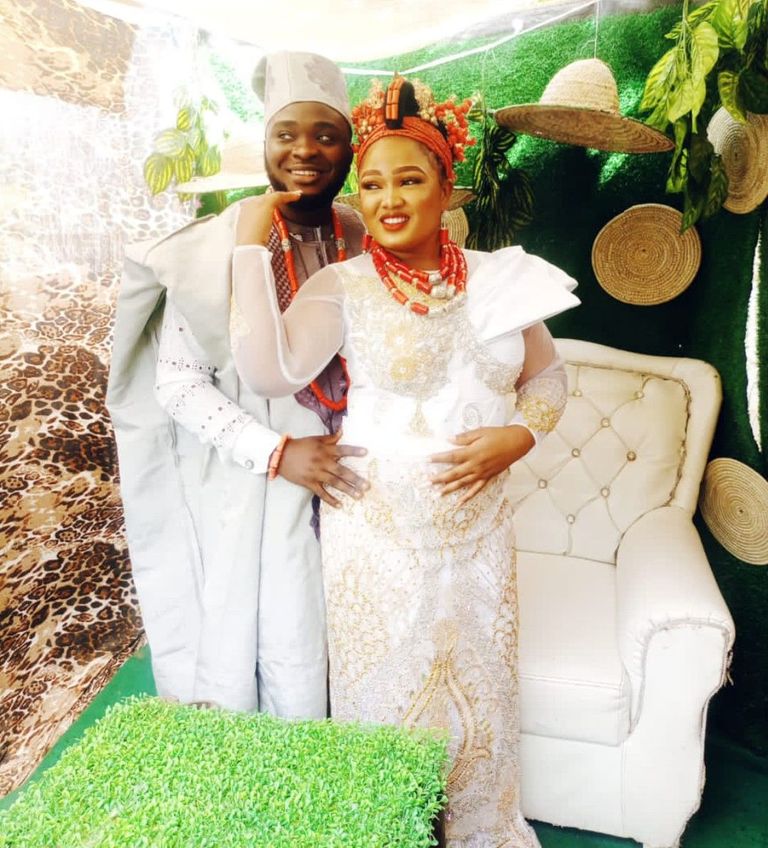
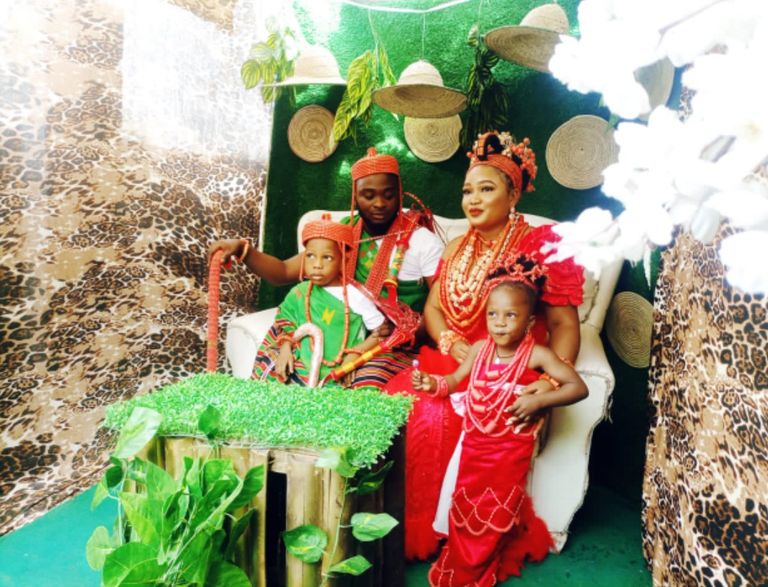
This process is not meant to be carried out on a lady who is pregnant. This is because there is a human being growing inside the wife and it is assumed that the man married both the wife and the child in her womb. At this point we got to the end of the traditional marriage with was concluded with a closing prayer.
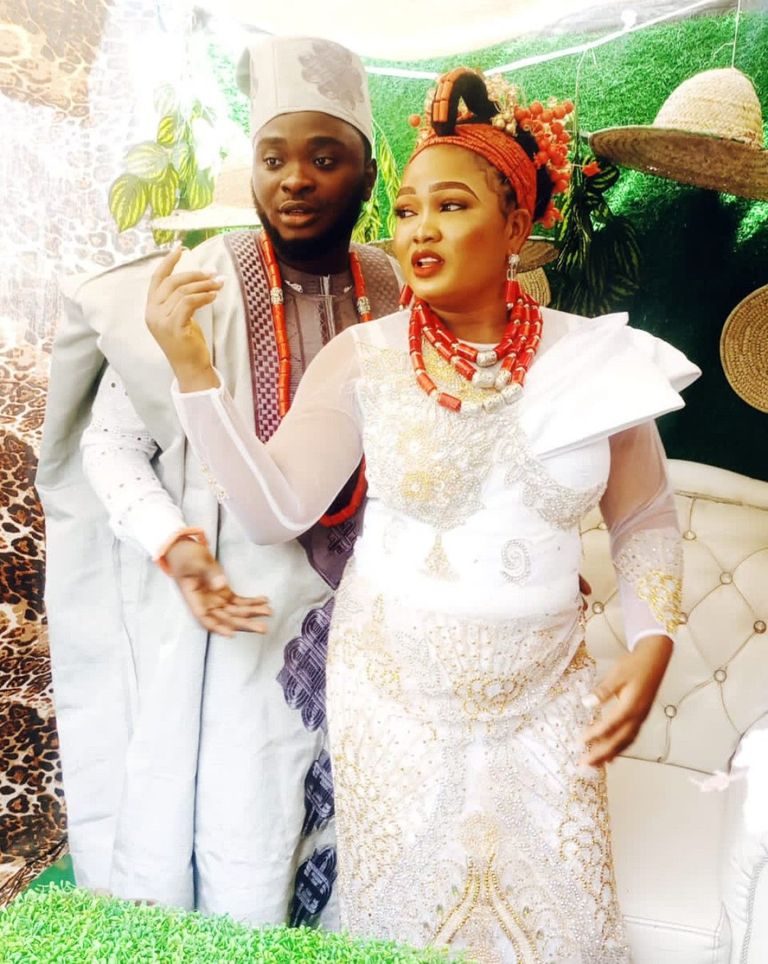
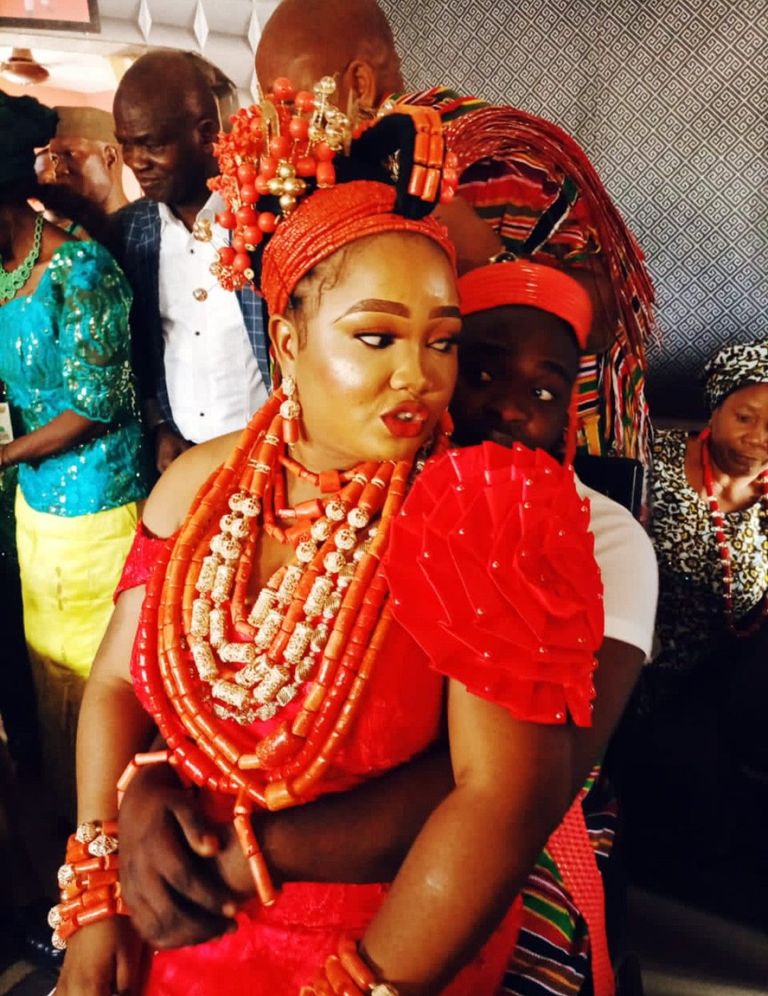
I will be sharing with you how other part of the wedding went on in my next posts.
Thank you for your time lovelies.
The post is originally written by me 💕@debbie-ese💕
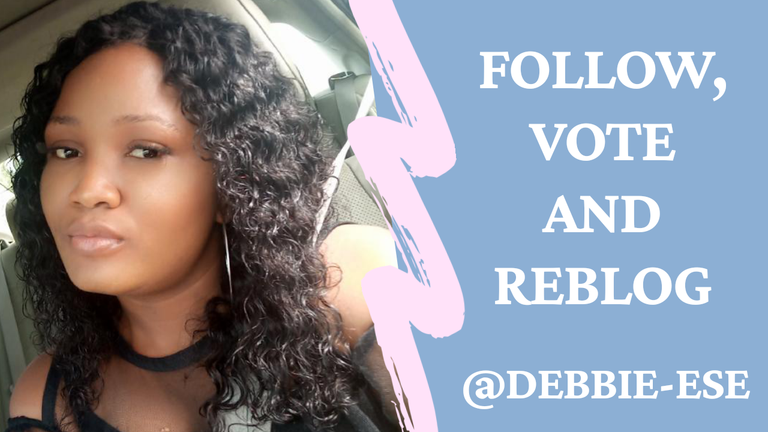
Congratulations on your traditional wedding.
Thanks so much
Congratulations to you. Best wishes in your marriage
Thank you
Congrats.